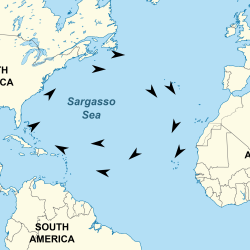Biology’s Hilary Bierman Receives Provost’s Excellence Award for Professional Track Faculty
Bierman helped create UMD’s neuroscience major from scratch—and launched it during a global pandemic.
The University of Maryland did not offer a neuroscience major when Hilary Bierman was an undergraduate student there, so she opted to study psychology instead, graduating in 2001 and heading to the University of Chicago where she earned a Ph.D. in neurobiology.

Years later, after returning to UMD as a postdoc in 2009 and ultimately becoming a senior lecturer in the Department of Biology, she was offered the opportunity to help launch a new neuroscience major for undergraduate students. For Bierman, it felt like a second chance to create her dream major.
“When the idea of a neuroscience major came up, I got really excited because that’s the major that I wanted as an undergraduate,” said Bierman, who is now the director of UMD’s neuroscience major. “Being part of creating this major was kind of like a self-fulfillment for me. I can see myself in these students.”
In recognition of her contributions to the Department of Biology and the undergraduate neuroscience program, Bierman received a 2023 Provost’s Excellence Award for Professional Track Faculty in both service and teaching—the first time a recipient has been recognized in more than one category. Winners receive a letter of recognition from the provost and a $1,000 award.
“It felt really good to receive this award,” Bierman said. “I was very appreciative, and it meant that people were paying attention to the great stuff that I, my team and our students have created.”
Jointly administered by the Colleges of Computer, Mathematical, and Natural Sciences (CMNS) and Behavioral and Social Sciences (BSOS), the neuroscience major opened new doors as one of UMD’s first cross-college majors. In addition to bridging the divide between CMNS and BSOS, Bierman overcame a second hurdle: launching the major amid the COVID-19 pandemic in fall 2020.
Despite the challenges, recruitment for the program steadily grew. The major, which started with just 97 students, gained 32 more by its second semester and now has 377 students and more than 100 alums.
In the last three years, Bierman oversaw the implementation of an honors program, a student ambassador program (“NEUR Ambassadors”) and a wide range of events designed to bring neuroscience majors together, including career panels, a research fair and coffee chats.
She also contributed to the development of an extensive course list and worked with faculty members to renovate and equip a neurophysiology teaching lab in the Biology-Psychology Building.
Biology Chair Joshua Singer credits Bierman’s passion and natural leadership skills for the major’s success.
“As Hilary often says, she is creating the academic program she wished was available when she was a student,” Singer wrote in his nomination letter. “Everyone involved in the neuroscience program understands they are part of something special, and Hilary is the face and driving force behind this.”
When she isn’t busy running a major, Bierman often finds herself in a classroom. Her favorite course to teach is one that’s required for all neuroscience majors: NEUR405/BSCI455: “Neuroscience Laboratory.” On lab days, students investigate the neurophysiology of a variety of invertebrates, including crayfish, worms and crickets.
While she enjoys “tinkering” in the lab and has a research background in the auditory system of animals—particularly sound localization in alligators—she finds the most fulfillment in seeing her students thrive in the hands-on learning environment she fosters.
“We have students who are bright and work hard, but maybe they’re not straight-A students in the classes where you have to read things and spit them back on tests,” Bierman said. “But then you give them this opportunity to learn by doing, and they’re amazing.”
In the coming years, Bierman wants to keep supporting her students, whether it’s in the lab or through her efforts to grow and refine the neuroscience major. As she and her team work to develop ways for alums to stay connected with one another, they are encouraged by the feedback they receive.
“I hear a lot of really positive things, and I feel that the program is a lot more than just a curriculum sheet of courses,” Bierman said. “We know that this university is huge, and we’ve made a real effort to make that connection with students. We want to give them the tools to create a community.”







